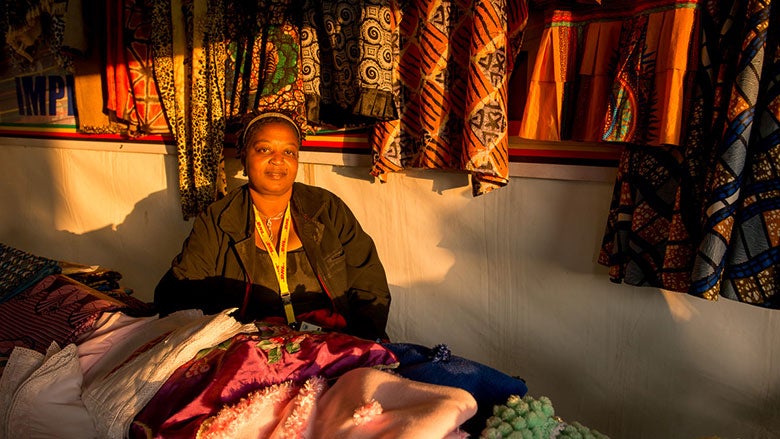
When early December was upon us—heralding the start of the month of annual festivities—a group of women executives met to put forward strategies for equality in business. They met against a background of the harsh reality of women’s exclusion from leadership positions in Zimbabwe, brought to the fore in a recently released Confederation of Zimbabwe Industries (CZI) Manufacturing Survey for 2017.
The survey, which derived some of its data from the 2016 World Bank Enterprise survey as well as from the Reserve Bank of Zimbabwe, revealed that—in a country struggling with unemployment—the labor force in the manufacturing sector is composed of only 20 percent women on average, and 80 percent of men.
According to another survey by the manufacturing industry itself, only 35 percent of these female employees (compared to 50 percent of male employees) are employed full-time. These statistics point to the economic uncertainty that women in Zimbabwe face.
Larger surveys estimate that, in both the private and public sectors, the proportion of women in top leadership positions in Zimbabwe is around 25 percent.
Despite such adversity, women continue to make a case for themselves. Investing in women makes sense, and not just because they make up close to 51% of the population, but also because they own 52% of the market space—the same market space that is giving employment to at least three-quarters of the population!
Women don’t receive enough credit—of any sort
But limited finance has made it difficult for small businesses to advance technologically, or to hire appropriate labour, invest and grow. This same informal market space that businesses inhabit boasts of a wider circulation of money—money that is much needed in the current economy.
Only 6 percent of women-owned businesses have been formalized enough to meet the requirements banks have for cash-flow projections and established markets.
Yet most businesses, even in their informality, are contributing to the economy significantly enough to show their potential to bloom, were they given more capital with less stringent measures.
Zimbabwe's Small and Micro Enterprise sector has just been estimated to be the 6th largest in Sub-Saharan Africa, contributing (according to the International Monetary Fund) to as much as 40 to 50 percent of the country’s $16.1bn GDP. Women’s SMEs, as with virtually all SMES, are a force to reckon with!
Women’s economic empowerment is a moral issue and also a critical economic issue, the World Bank President, Jim Kim, has said. “No country, organization, or economy can reach its full potential and meet the challenges of the 21st century without the full and equal participation of women and men.”This applies to Zimbabwe, where the numbers speak for themselves, as much as it does to everywhere else.
- Of the 60 companies listed on the Zimbabwe Stock Exchange, only three are headed by women. And 58% of these companies do not have any women on their boards.
- Only one out of the 19 CEOs of larger banks in Zimbabwe is a woman, and only 2 out of the 185 CEOs of Micro Financing Institutions.
- Of the 103 state-owned parastatals, only 15 are headed by women.
The Confederation of Zimbabwe Industries, UN Women, and members of the World Bank recently came up some recommendations to change this. These included:
- The business case for women needs to be documented so that financing institutions see them for the business gurus they are
- Women friendly information platforms must be created to reach women in the communities who are owners of the very informal business set ups that are making this economy tick
- A message should go out which simplifies why they must formalise their businesses, the benefits of doing so, and how to do it


Join the Conversation